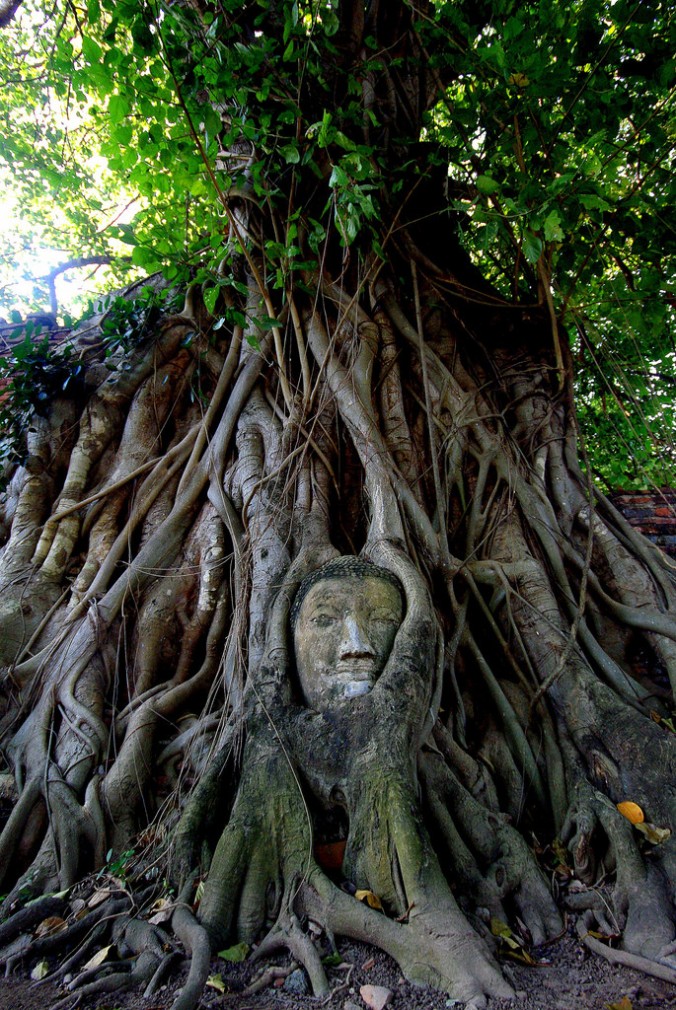
Thailand
A thousand murders, a thousand stories to tell
Time to join the dots on environmental murders
In recent days the blood of environmentalists has flowed once again. A man in China got beaten. A man in Thailand was shot dead. Both had campaigned against illegal pollution. They are just the latest in a long — and fast-growing — list of people whose exposure of environmental crimes has made powerful men their enemies. [*see six updates below]
On Monday a gunman shot Prajob Naowa-opas four times in broad daylight in Chachoengsao province, Thailand. The Bangkok Post reported that local police thought the murderer was a professional hit and that “Prajob’s public exposure of and active opposition to toxic waste dump sites was the probable cause”.
Around 2,500 kilometres away in China’s Zhejiang Province, lives a kindred spirit called Chen Yuqian, a 60-year-old resident of Pailian village. For ten years he has campaigned against paper mills he says are polluting the nearby river with toxic waste.
Last week he and other activists used online social media to challenge environmental officials to bathe in the river they were charged with keeping clean. But according to media reports this prompted a gang of men to raid his home at 6am on Sunday and beat him with their fists.
Two cases of violence against campaigners within a week might seem a coincidence but these are dangerous days for activists and journalists who speak out against powerful people whose actions harm the environment. In many parts of the world organised crime cartels, corrupt government officials and military units with muscle to flex are the powers that decide how and when to silence those who expose their greed.
Sombath Somphone, the best known environmental and development campaigner in Laos, is still missing. On 15 December 2012, men abducted him and drove him away in a van when police stopped him on a street in Vientiane. Next door in Cambodia, a military policeman shot dead Chut Wutty, a prominent campaigner against illegal deforestation in April of that year. Five months later, journalist Hang Serei Oudom was axed to death there after reporting on links between the military and illegal logging (see Journalists are dying to tell stories of environmental plunder and They kill environment journalists, don’t they?).
Intimidation, violence and murder have long been the tools that the powerful have used to cow those who oppose their lust for timber, oil, gems, fast money and even the ‘pink gold’ of farmed shrimp. But according to UK-based environmental investigators Global Witness, the death rate is rising. Their 2012 report A Hidden Crisis [PDF] described more than 700 murders over the past decade — that’s more than one each week on average. By 2011, there were 106 deaths — more than two a week.
Last year gunmen slayed five rangers in Chad whose job it was to protect the last of the region’s elephants. In 2011, in Brazil, hired killers murdered three environmental activists in a single week. And in the Philippines, since 2010, assassins have killed twenty of the forest rangers who try in vain to stop illegal logging. Professor William Kovarik of Radford University lists many more murders here.
Are the numbers rising just because of better communications? Or is there a real upsurge — and, if so, is it a sign of things to come? Either way, one thing is clear. To too many powerful and greedy men, the life of an environmentalist — or a journalist or a park ranger — is worth a lot less than some logs or some oil, a handful of diamonds or an elephant’s tusks. And between courage and cowardice we all stand or fall.
[Update: 5 March 2013. The BBC reports that Venezuelan authorities are investigating the killing of indigenous leader, Sabino Romero, a well-known campaigner for the return of ancestral land to the Yukpa tribe. Mr Romero was shot dead on Sunday when two gunmen on a motorcycle opened fire on his vehicle on a motorway. He had earlier asked for police protection.]
[Update: 14 March 2013. Perween Rahman was murdered by masked gunmen on 13 March 2013 in Karachi, Pakistan. She worked with poor communities to help them gain legal title to land in the city’s informal settlements. The BBC reports that this may have made her enemies among local criminal groups intent on seizing land.]
[Update: 15 March 2013. On 12 March assassins murdered a Guatemalan activist and indigenous leader, Gerónimo Sol Ajcot, who was a senior member of the National Indigenous and Campesino Coordinating Council.]
[Update: 28 March 2013. Mongabay.com reports that on 22 March four masked men killed Onesimo Rodriguez, a Ngäbe indigenous Panamanian who opposed the Barro Blanco hydroelectric dam project.]
[Update: 28 March 2013. MiningWatch Canada reports that on 17 March the President of the Xinca Indigenous Parliament and three other Xinca leaders were abducted by a group of heavily armed masked men while on their way home from observing a public referendum on Tahoe Resources‘ Escobal mine in Guatemala. Three of the men survived. Their vehicle was found with multiple bullet holes and one of the men — Exaltación Rámirez López — was found dead]
[Update: 9 April 2013. The Guardian reports that Russian journalist Mikhail Beketov — a Russian journalist who suffered brain damage and lost a leg after a brutal assault that followed his campaign about forest destruction for a road-building project — has died after choking to death in hospital, aged 55.]
Related posts: They kill environment journalists, don’t they?
